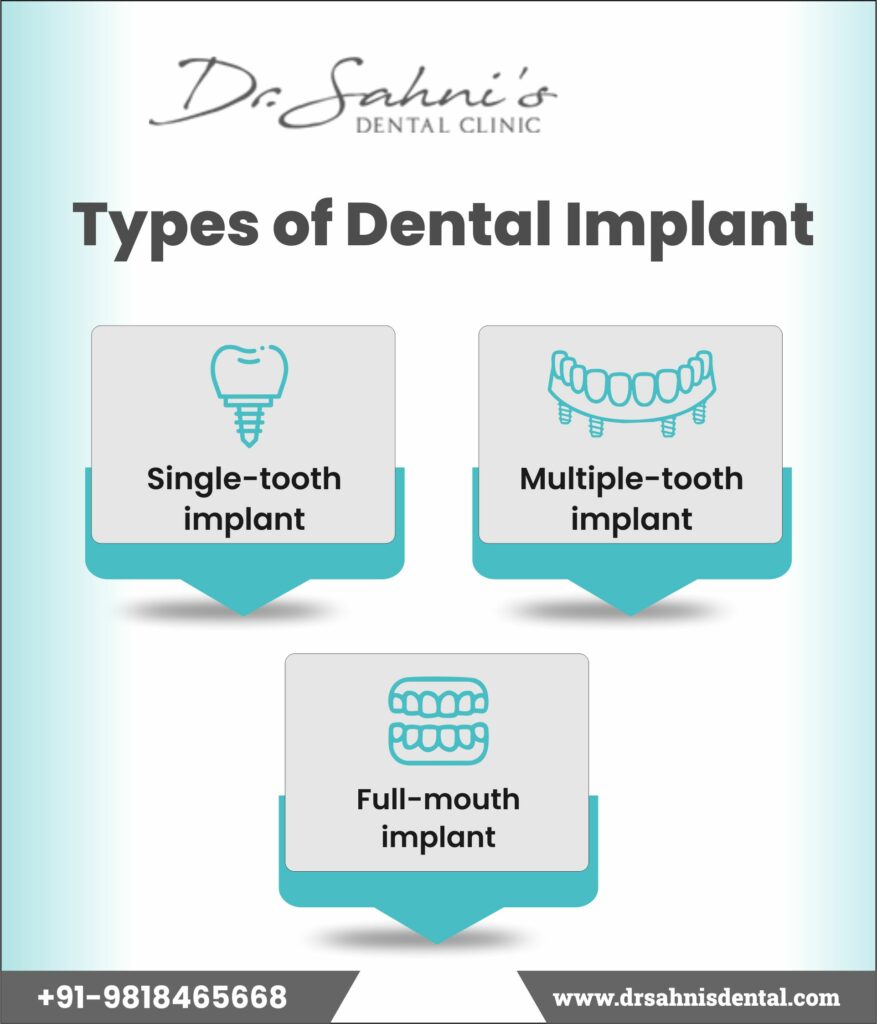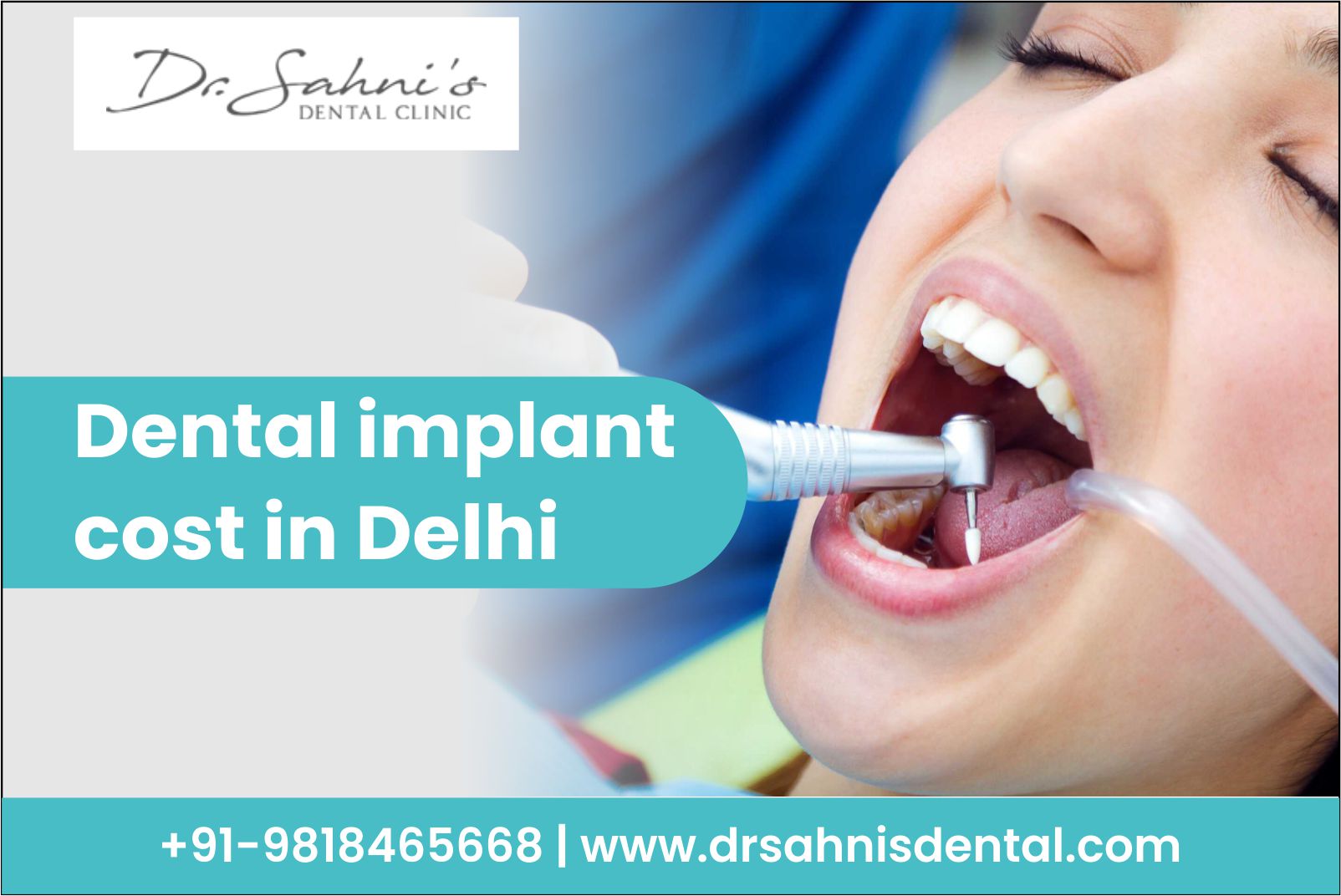The cost of a dental implant ranges between Rs 20,000 and Rs 1,00,000, or this can be higher depending on the market rates.
It includes the surgery for its placement, all the components, and the implanting of the crown.
However, various factors drive the price range of dental implants. Such as
-
Dental Implant Materials
Dental implants are generally made out of a titanium ‘root’ and ceramic crown. A small metal screw joins the two pieces, but in some versions, the screw is attached to the crown itself as a part of it.
Titanium metal is utilized in dental implants because the jawbone binds well. Titanium is biocompatible, which signifies it is unharmful to our bodies. Titanium or titanium alloys are the definitive implant materials of all implants.
In a few cases, a patient may have a sensitivity problem or allergy to a particular material, so in that case, the material is used accordingly.
This also impacts the total price of dental implantation. Generally, a ceramic dental implant is most common after titanium for dental implants.
Zirconia is the leading ceramic alternative material; its color is beige, naturally blending it with the tooth’s color.
-
Number of Dental Implants
The largest cost factor in the dental implant has to be, and it varies from person to person. A simple, single-tooth implant is adequate if only a single tooth is missing, a simple, single-tooth implant is adequate.
However, if a patient is missing several teeth, several dental implantations could be done, but in that case, it will exponentially raise the cost.
-
Bone Grafting
If a person has lost the teeth over a year and has not done a tooth replacement, a high probability is that the bone has been lost.
In extreme cases, this situation can worsen and lead to more teeth loss.
To successfully implant the teeth, a person should have healthy bone density. Bone grafting is an extra step and increases the recovery time required after implantation, which may enhance the prices.
Patient Oral Health
Patients who have suffered from oral infections can have a challenging experience while having dental implants.
Implants could fail if the mouth had infections or any other type of trauma. It includes gum disease, jaw infections, abscesses, or a root canal.
This can add to the overall cost and makes the dental plantation complex, especially if implant replacements are needed.
Tooth Extractions
In case of infections that might require tooth extraction, an implant can be placed the same day after the tooth extraction, thus saving time.
However, if your tooth requires professional extraction, it’s also likely to raise the final cost of implantation. In many cases, basic tooth extractions are covered by dental insurance providers.

Types of Dental Implant
There are several types of dental implantation available. The right consultant can help you choose the best.
Single-tooth implant.
If one tooth needs to be replaced, your doctor will do a single-tooth implant, then put in a single replacement tooth or crown.
Multiple-tooth implant.
If a few teeth of yours are missing, your doctor may do a multiple-tooth implant with custom-made replacement teeth.
Full-mouth implant.
If you don’t have any teeth, your doctor may do a full-mouth dental implant.
Endosteal implants
This is the most common type of dental implant. Its shape is like a small screw, cylinder, or blade. It is fitted into the jawbone and holds one or more replacement teeth, also called prosthetic teeth.
Subperiosteal implants
This type of implant is placed on or above your jawbone. It’s a metal post placed under your gum, and it sticks through your gum to hold it still.
When would I need a dental implant?
The under-mentioned could be the indication of a need for a dental implant.
- If an individual has a missing tooth or missing teeth.
- If an individual consists of loose dentures or loose partial dentures.
- Contains an infected tooth that cannot be corrected by RCT and needs to be extracted.
- Consist of a loose dental bridge.
- If an individual has a sunken-in facial appearance due to loss of teeth.
- If an individual is tired of using messy denture adhesives and denture care.
- If an individual has a broken or severely cracked tooth.
How do dental implants work?
Performing the dental implant placement procedure requires a highly skilled prosthodontist or implantologist. The placement method of a dental implant includes many steps.
- Initially, your dentist will surgically seat a screw made of titanium into your jawbone.
- As you recover, the implant will integrate with the jaw bone, developing a strong foundation for replacement teeth.
- Further, a small connector named an abutment is placed on top of the dental implant to connect the replacement teeth.
- Lastly, attachment of replacement teeth to the abutment results in strong teeth that are identical to the natural ones and function the same.
What are the benefits of dental implants?
The following could be the benefits of dental implants –
- You will undergo regular dental hygiene such as brushing, flossing, and visiting your dentist for regular checkups and cleaning.
- The natural-looking appearance of implanted teeth.
- Dental implants are fastened to your jawbone using strong titanium posts.
- They can replace several teeth.
- They promote bone replenishment for good oral health.
How are dental implants better than bridges?
Dental implants and dental bridges both deliver natural and good outcomes compared to natural teeth but arrive with their positives and negatives.
Dental bridge cons
- Requires a replacement about every 5 to 7 years.
- The natural-looking impression dulls with age
- This type of replacement leads to more cavities and tooth decay in surrounding teeth.
- Damages the adjacent healthy teeth.
Advantages of Dental implant
- It can last for 15 years or more and is the long-lasting treatment option available in the market.
- Ability to Keep the natural-looking appearance longer than bridges
- Prevents deterioration of the healthy teeth adjacent to the implant.
- The huge 10-year success rate of around 97% is noted.
